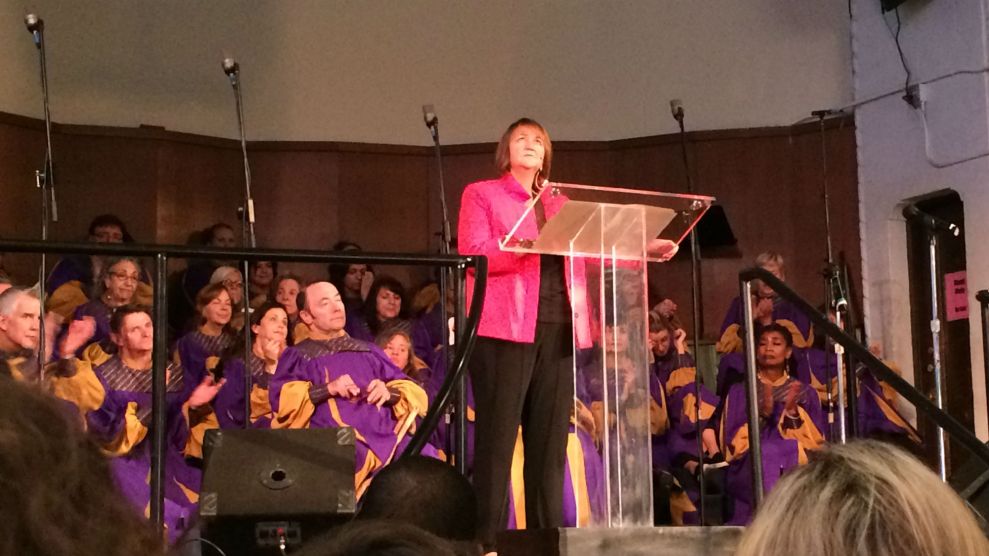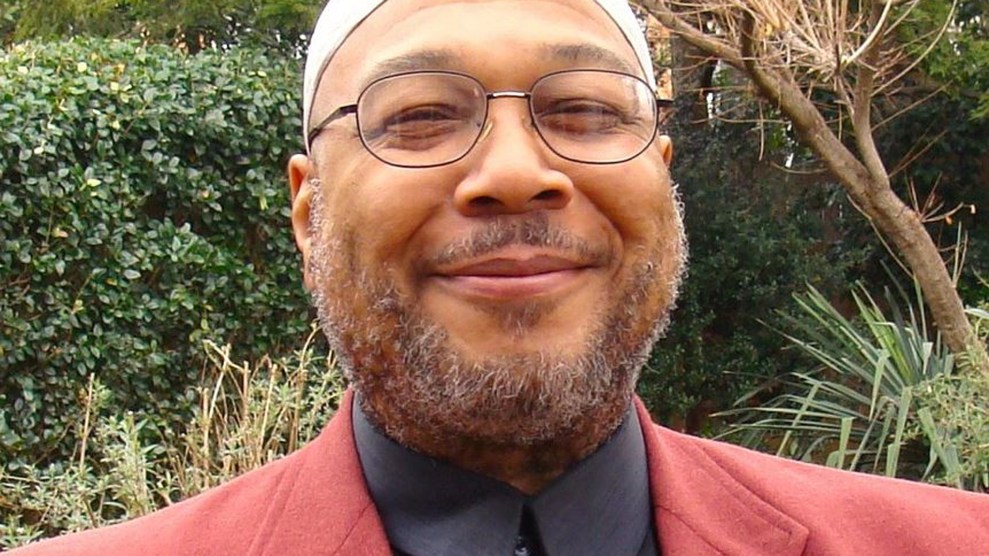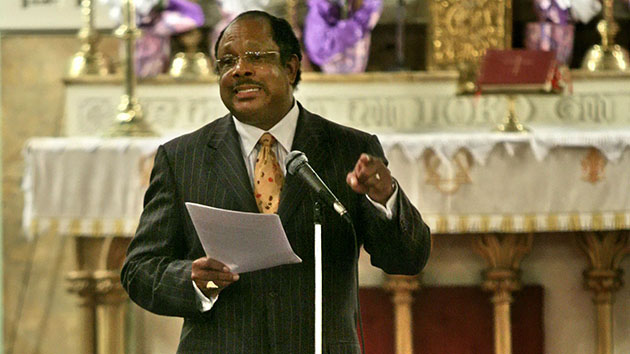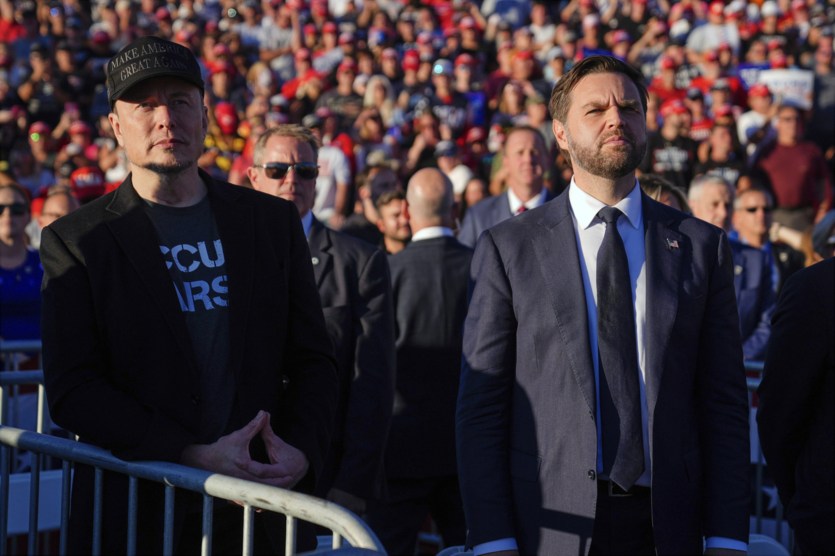
Becca Andrews/Mother Jones
When the Reverend Karen Oliveto was asked if she would consider becoming a bishop in the Methodist Church, she wasn’t sure what her response would be. “I don’t want who I am—because I am so out—to harm the church,” Oliveto said before pausing. “And I don’t want to be harmed.” But despite all the hostility within segments of the broader church community toward homosexuality, there was strong support from leaders in her district for elevating San Francisco’s 58-year-old, openly gay pastor to the role of bishop with leadership over Methodist churches in Colorado, Utah, Wyoming, Montana, and two Idaho churches. Oliveto prayed on it and asked her wife, Robin Ridenour, a church deaconess, for advice. On a Saturday night, during one of their many conversations on the subject, Robin sighed and turned to Karen. “You know what? Perfect love casts out all fear,” she said, quoting 1 John 4:18 in the Bible.
“Maybe this is the time,” Oliveto thought before she fell asleep. She had to give church leadership an answer the next day.
The next morning, the couple woke up to news that a shooter had killed 49 people and wounded 53 others at a gay nightclub in Orlando, Florida, in the bloodiest mass shooting in the history of the United States. “We realized that people are still being murdered every day for their sexuality, sexual orientation, or gender identity,” Ridenour said. “Someone told me, ‘If Karen becomes bishop, she will save lives.’ So after the shooting, we both felt that it was really important that the Church see that everybody needs to be included, and we really need to change.”
It’s been a year since the Supreme Court legalized gay marriage. But despite increasing social acceptance over the past two decades—a poll from Pew Research Center says 55 percent of Americans support gay marriage, and only 37 percent are explicitly against it—much of organized religion has been resistant to accepting those who openly identify as LGBT as members, much less in leadership positions. Religious institutions such as the Episcopalian and Presbyterian churches have confronted schisms in their leadership and communities over the issue of gay rights.
The same fate may be in store for the Methodists. Oliveto’s nomination as bishop has become a lightning rod for much of the free-floating concerns about LGBT rights in a church that claims 12.8 million in their worldwide membership and 864 delegates responsible for legislative decision-making. The existing standard was established in 1972, when a provision was added to the Book of Discipline, the church’s governing text, on the requirements to become an ordained pastor: “[S]elf-avowed practicing homosexuals are not to be certified as candidates, ordained as ministers, or appointed to serve in The United Methodist Church.”
Much has changed since then. The first female bishop, Marjorie Matthews, was elected in 1980, although even today there are only 14 female bishops out of 66, and a 2011 UMC overview had only 25 percent of U.S. clergy as female. But the role of LGBT members in the Church has not been fully addressed. A strong wing of fundamentalist Methodists believe same-sex relationships are sinful and LGBT people are not fit to lead. Approximately 40 percent of the church’s 864 delegates are from other countries, and 30 percent of that number are from Africa, where there has been a history of intolerance to LGBT relationships. This is where the Church’s divide over LGBT issues gets complicated because, unlike more strictly hierarchical institutions such as the Catholic Church, the Methodist Church tries to be a democracy.
The highest authority of that democracy is the church’s general conference, which occurs every four years and where legislative decisions are made about the Church’s teachings and its function. At this year’s General Conference in May, in Portland, Oregon, the question of LGBT rights assumed a central role.
The delegates in Portland, frustrated after years of debate, asked the bishops to confer, weigh in, and provide guidance on how to handle a number of important questions surrounding what they refer to as “human sexuality.” Can ordained Methodists perform marriage ceremonies for gay couples? Are gay churchgoers allowed to become clergypeople? And most basic: Is homosexuality a sin? The bishops proposed any human sexuality legislation be tabled for this year and created a commission to explore and pray over options. A special session is likely to be called in 2018 or 2019 to act on the commission’s findings.
The factions against inclusion appear to leave no room for compromise. The Reverend Rob Renfroe, the president and publisher of the anti-LGBT Methodist publication Good News Magazine and pastor of a 11,000-member church in Texas, told his followers in a YouTube video that the election of a lesbian bishop has put the church “in a crisis,” speculating that the Western Jurisdiction deliberately selected her to cause a schism. Renfroe, a well-known leader on the more conservative end of the Methodist spectrum, called for her dismissal and criticized the discussion of inclusion as “happy talk.”
“There’s going to be a better day for faithful United Methodists,” he said. “Whether we’re able to hold this Church together, whether we’re able to step into a place of vibrant Wesleyan orthodoxy within this denomination—which I am still bold enough to pray for—or whether there is going to have to be some kind of separation that will set evangelical, orthodox, Wesleyan believers free to pursue a missionary Church that is committed to converting people to the truth of Jesus Christ.”
Oliveto knows that many in her religious community consider homosexuality a sin and justify this belief with biblical references. She acknowledges “there are six or seven passages that may or may not be about homosexuality,” but points out “we have a lot more on economic justice…on what it means to live and love, and to me, those are the things we ought to be focusing on.” The fundamental question, for Oliveto, involves God’s love: “If you’re going to tell me that my love is wrong, I’m concerned about the church and its ability to recognize God. Because we believe God is love and love is of God. So if you’re telling me that my love is invalid, then what is that saying about your understanding of God?”
For her eight years at the uber-progressive Glide Memorial, no one in her congregation ever lodged a complaint against her as a senior pastor who was also an out lesbian. But San Francisco is not representative of the rest of the nation, much less the world. “The fact is that there have been faithful LGBTQI folks serving not only in the pews but in the pulpits at every level of the Church,” Oliveto says in her cramped office at Glide, hands clasped over her desk. But in less tolerant communities, many have faced serious consequences.
Irene Elizabeth Stroud, a lesbian pastor who lived with her partner, was defrocked in 2005. The Reverend Amy DeLong faced church trial in 2011 for officiating a wedding between two lesbians, and for being in a lesbian partnership herself. The Reverend Frank Schaefer, who performed a marriage ceremony for his gay son, was defrocked in 2013 (although he was ultimately ‘refrocked’ the following year). And just this year, the Reverend Cynthia Meyer, a pastor at Edgerton United Methodist Church in Kansas, lost her job.
On January 3, Meyer, dressed in a long white robe and adorned with a stole illustrated with the images of people of different nationalities and cultures, came out to her congregation after a period of “serious, prayerful discernment.” About five minutes into her sermon, she told her congregation that she’d seen “a star breaking through the dark clouds that have overshadowed” her ministry.
“The Lord has led me here to share my deep truth with you,” she said, lifting her arms, palms upward. “I’ve been an ordained United Methodist pastor for 25 years, and at last, I’m choosing to serve in that role with full authenticity, as my genuine self—as a woman who loves and shares my life with another woman.” She looked down, and her lips tightened into a firm, determined line. She told her congregation that after being single for more than 20 years, she met a woman named Mary a few years ago, and they fell in love.
Two days later, a complaint was filed against her by her district superintendent. And after nearly eight months that included difficult negotiations with the region’s bishop, four lawyers, and two mediators, Meyer announced that she would step down from Edgerton, effective September 1. She feared a drawn-out church trial would cause harm to her congregation and the denomination as a whole. But her decision to resign was neither easy nor just, Meyer says. “One of the general rules of the denomination is to do no harm, and I would assert that these policies and practices in general and certainly what has happened in my particular case caused a lot of harm,” Meyer tells me. “It’s been hurtful and difficult.” After September 1, she can’t be appointed or perform the functions of an ordained elder, which means she could not officiate the sacraments of baptism and communion. Meyer will be paid $37,000—about a year’s salary—and she will technically keep her credentials for the next four years, until just after the next church General Conference meeting, where the Methodists may have new guidelines regarding gay clergy.
Oliveto seems destined for religious leadership. Born on Good Friday and raised in a town called Babylon, she says she heard “the call to ministry” at age 11. At 16 she had already preached her first sermon. After high school, she went to the Pacific School of Religion in Berkeley, California, and came out toward the end of her first year. Oliveto was terrified. “I kinda knew my whole life, you know there’s something different about you, and you can’t name it,” she remembers. After coming out in Berkeley, she fled to Nova Scotia, where her grandparents lived. Somewhere in Utah, she broke down crying. “‘Okay, God, this is who I am, I’m a lesbian,'” she prayed. And a peace that she says “passes all understanding” washed over her.
Oliveto landed in San Francisco at Bethany United Methodist Church, where her activism against homelessness and LGBT discrimination began in earnest. When she began her 12-year tenure there in 1992, her first instinct was to “go back in the closet,” she said, but the Church’s leadership insisted she was wanted because of who she was, not in spite of it. After she performed the first gay marriage ceremony in a United Methodist Church in 2004, she received her first complaint, filed by someone outside the church. Facing the possibility of a trial, she went back to the Pacific School of Religion as associate dean of academic affairs and remained there for four years before becoming pastor at Glide. Oliveto declined to elaborate on the complaint, simply saying that it was resolved and she moved on.
Oliveto met Ridenour at an annual church camp for junior high school students where they both worked—Oliveto as the program director, and Ridenour the camp nurse. The two stayed in touch and reconnected in Chicago 17 years ago. They dated long-distance for a year, before Ridenour moved to San Francisco. They were married two years ago and viewed the importance of being public about their relationship as a way “to take away the mystery,” Ridenour says.
A month after Oliveto made her decision to be a candidate for the bishop position, the couple traveled to Scottsdale, Arizona, where the Western Jurisdiction of the United Methodist Church was holding its annual conference. Those who attended would be voting for bishop among nine candidates. As the conference progressed, each of the other candidates dropped out to make way for Oliveto. The first Tongan candidate for bishop, the Reverend Siosifa Hingano, withdrew his candidacy because his gay son, who was also a delegate at the conference, was voting for Oliveto.
“I pray that my people will open their minds, so that my son,” he paused and pointed his finger for emphasis, while choking up, “and all gay and lesbian people will walk freely on the bridge where I lay down my life through a wide door where people with open arms and open hearts will welcome them all home.”
On Friday night, July 15, a delegate draped a lei of white flowers around Oliveto’s neck and a bishop pinned the Episcopal pin to her dark pink blazer, signifying her election as bishop for the Mountain Sky Episcopal Area, and her status as the first openly gay bishop in the Methodist Church. She stepped up to the podium under fluorescent light, blinking in a vain attempt to clear her vision of tears, and took a deep breath. “I think at this moment I have a glimpse of the realm of God,” she said, her voice wavering, gripping the side of the podium. She bowed her head briefly. “I think,” she whispered.
Her wife stood behind her, surveying the crowd. Occasionally, she wiped her eyes.
But Oliveto’s position is not completely secure. The South Central Jurisdiction filed a challenge with the Judicial Council, what Oliveto describes as the UMC’s “Supreme Court,” the same day she became a bishop. The Church will need to rule on whether Oliveto can be a bishop and be openly gay at the same time. The matter is on the docket for April, but because there has never been an openly gay bishop before, it’s unclear what will happen.

















